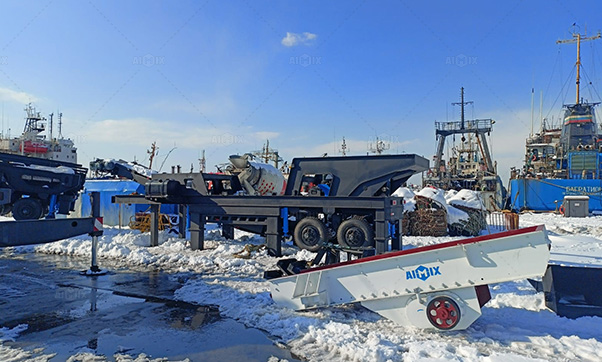Securing a stone crusher plant at an optimal price requires a strategic approach that aligns with specific project demands. Stone crusher plant price varies widely depending on plant capacity, equipment configuration, and operational efficiencies. Understanding these factors enables buyers to negotiate effectively, ensuring a cost-efficient investment while maintaining performance standards.
Understanding Project-Specific Crushing Requirements
The foundation of successful price negotiation lies in a clear assessment of project needs. A crushing plant’s cost depends largely on the type and hardness of materials being processed. For instance, harder stones like basalt or granite demand more robust crushers, which may increase initial expenditure but reduce long-term wear and tear costs.
Processing capacity is another critical factor. A higher tonnage requirement demands a plant with increased power and throughput, influencing the pricing structure. Additionally, buyers must determine whether a stationary or mobile setup best suits their operations. Mobile plants offer flexibility for changing sites, while stationary setups provide stability and efficiency for high-volume, long-term projects.
Key Considerations for Requirement Assessment
-
Material type – Determines crusher strength and durability requirements.
-
Processing capacity – Influences plant size and power consumption.
-
Mobility needs – Decides between stationary and portable configurations.
Key Factors Affecting Stone Crusher Plant Pricing
A crusher plant’s price is heavily influenced by the selection of components and technology used. A basic configuration with primary and secondary crushers is often more affordable, whereas multi-stage setups with advanced automation increase costs but enhance precision and productivity.
Operational costs, including fuel consumption, spare parts, and regular maintenance, must also be factored into negotiations. Some manufacturers offer energy-efficient models with lower running expenses, which can justify a slightly higher upfront price. Additionally, customization requests, such as dust suppression systems or conveyor upgrades, impact the final pricing but can improve plant longevity and compliance with environmental regulations.
Cost Variables to Consider
-
Component selection – Determines initial and long-term costs.
-
Energy efficiency – Impacts operating expenses and sustainability.
-
Additional features – Custom add-ons may increase price but improve performance.
Negotiation Strategies for Cost-Effective Procurement
Effective negotiation begins with comparing multiple suppliers to identify the best balance of price and quality. Buyers should request detailed quotations, including warranty terms, after-sales service, and spare part availability, to assess long-term cost implications.
Flexibility in contract terms is another valuable negotiation tool. Some manufacturers provide leasing options, installment plans, or bulk purchase discounts, which can significantly reduce financial strain. Additionally, aligning purchases with seasonal discounts or industry trade events can secure better pricing and additional benefits, such as free installation or extended warranties.
Proven Negotiation Tactics
-
Compare multiple suppliers – Ensure competitive pricing and quality assurance.
-
Leverage financing options – Reduce upfront financial burden.
-
Purchase during industry events – Take advantage of discounts and added incentives.
A well-negotiated stone crusher plant price purchase optimizes investment returns while ensuring operational efficiency. By aligning project-specific requirements with pricing variables and strategic procurement tactics, buyers can secure the best deal without compromising performance or long-term cost savings.

Comments
No comments yet. Be the first to react!